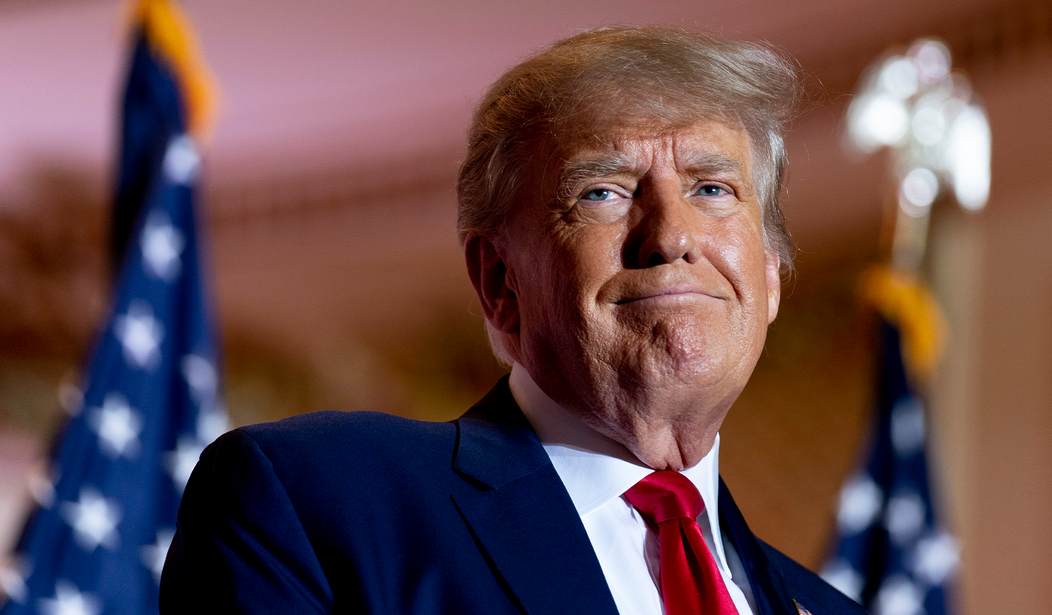It took more than three years for House Democrats to obtain Donald Trump's federal income tax returns, which they released to the public last Friday. That effort also required setting a dangerous precedent that threatens the privacy of Democrats as well as Republicans.
Every president since Jimmy Carter has voluntarily released his tax returns. Trump's defiance of that tradition provoked much criticism and invited speculation about what he might be hiding. But federal law generally protects the confidentiality of information that Americans are legally required to share with the IRS.
Democrats found a way around that obstacle by invoking a provision of the Internal Revenue Code that authorizes the chairman of the House Ways and Means Committee to request "any return or return information." In April 2019, the committee's chairman, Rep. Richard Neal (D-Mass.), sought tax returns for then-President Trump and several of his businesses.
Neal said his committee was "considering legislative proposals and conducting oversight related to our Federal tax laws, including, but not limited to, the extent to which the IRS audits and enforces the Federal tax laws against a President." The Treasury Department rejected Neal's request.
That decision was backed by the Office of Legal Counsel, which noted that "Congress could not constitutionally confer upon the Committee the right to compel the Executive Branch to disclose confidential information without a legitimate legislative purpose." The OLC agreed with the Treasury Department that "the Committee's asserted interest in reviewing the Internal Revenue Service's audits of presidential returns was pretextual and that its true aim was to make the President's tax returns public, which is not a legitimate legislative purpose."
Recommended
That take is consistent with what happened last week. The committee's investigation found that the IRS had failed to comply with a regulation requiring annual audits of the president's returns, a lapse that inspired legislation aimed at codifying that mandate. But that "legislative purpose" did not require public disclosure of Trump's returns without his consent.
After President Joe Biden took office and Neal reiterated his request, the OLC reversed its position. While the Treasury Department was now willing to furnish the returns, Trump continued to object.
A federal judge sided with Neal, and last August the U.S. Court of Appeals for the D.C. Circuit affirmed that decision. In November, the Supreme Court declined to issue a stay, which was Trump's last hope to keep his returns confidential.
The D.C. Circuit declined to speculate about Neal's true motives. "The mere fact that individual members of Congress may have political motivations as well as legislative ones is of no moment," the appeals court said.
The upshot is that Neal's successors can obtain and disclose anyone's tax returns, provided they claim the information may be useful in overseeing the executive branch or writing legislation. It is not hard to imagine how Republicans, who just took control of the House, might use that power to discomfit their political opponents.
Republicans could argue that Hunter Biden's tax returns are relevant in investigating the president's potential "conflicts of interest," one of the subjects that Neal mentioned in his June 2021 letter to the Treasury Department. Or they could seek tax information about Democratic political donors or left-leaning philanthropists with an eye toward legislation addressing campaign finance or charitable deductions.
Rep. Kevin Brady (R-Texas), then the ranking Republican on the Ways and Means Committee, warned last week that Democrats had overturned "decades of privacy protections for average Americans" and created "a dangerous new political weapon reaching far beyond the former President." That concern is more than partisan posturing.
If legislators become accustomed to deploying this weapon, "that's the end of tax privacy," George K. Yin, an emeritus tax law professor at the University of Virginia, told The New York Times. "Essentially no one's tax information is really protected, as long as you cross some interest who happens to be in power at some particular point in time. Then we're all vulnerable."

























Join the conversation as a VIP Member